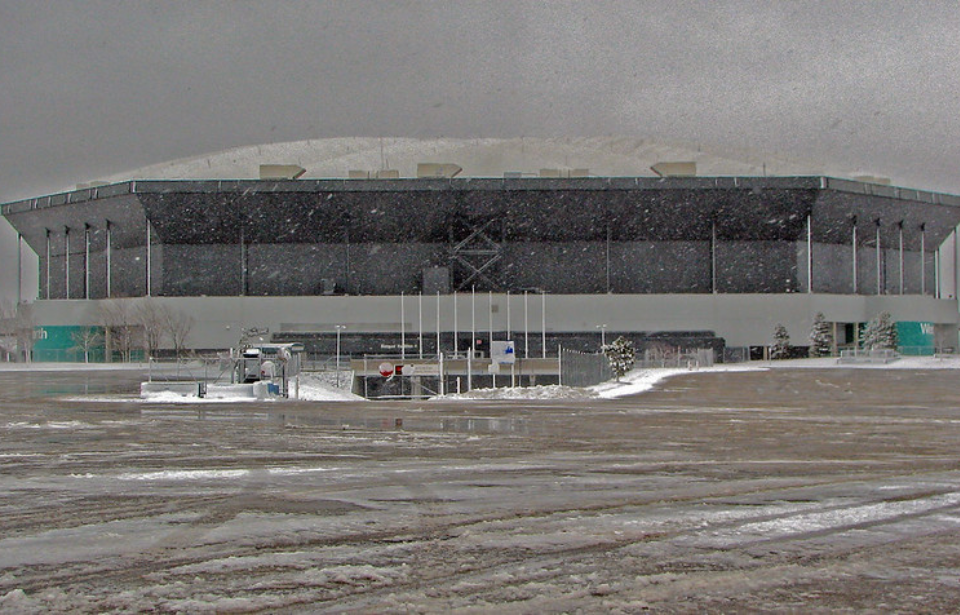The Pontiac Silverdome was an indoor sports stadium located in Pontiac, Michigan. Construction was completed in 1975, with the overall cost for this huge building coming to a whopping $55.7 million. Architect C. Don Davidson, local resident and high school athlete, had come to the decision to build a sports complex just under a decade prior. He was eager to help renew the city, and the stadium was a significant part of his plan. Keep reading to learn more!
Capable of accommodating over 80,000 sports fans
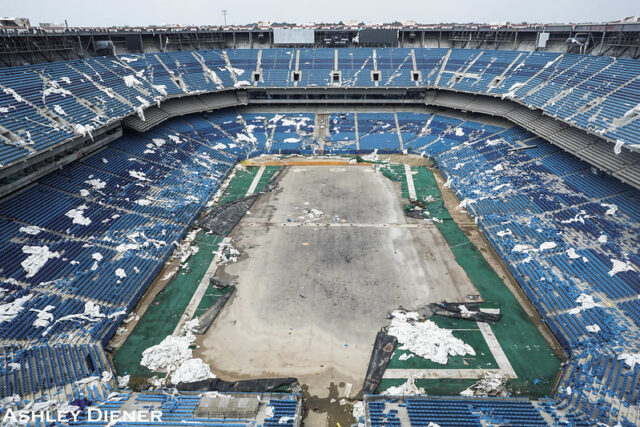
In total, the Pontiac Silverdome could accommodate 80,311 people across 102 luxury suites and 7,384 club seats. At the time of its construction, it was the best sports facility in the world, going on to host a variety of events, the majority of which centered on the National Football League (NFL).
The Pontiac Silverdome’s defining feature was… Its roof?
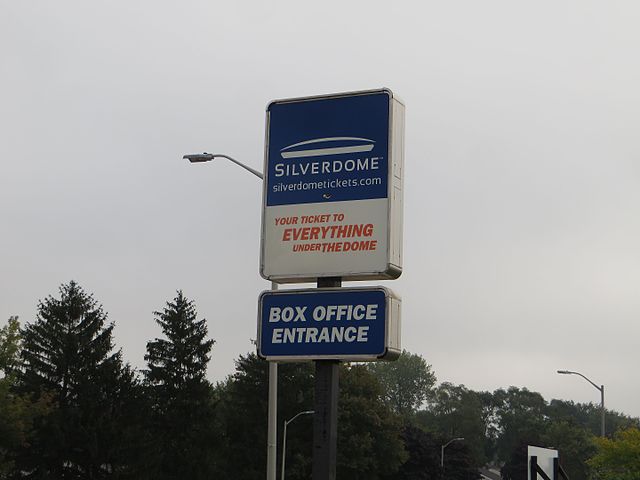
The most famous feature of the Pontiac Silverdome was its Teflon-coated inflatable roof, consisting of fiberglass panels. While it was intended to be completed by the time the Detroit Lions played their first game there in 1975, only half of the work was done, meaning the astroturf below became soaked by heavy rain. While helicopters were brought in to try and dry the field, this proved unsuccessful.
On the plus side, the home team defeated the Kansas City Chiefs, 27-24.
Serving as a multipurpose stadium
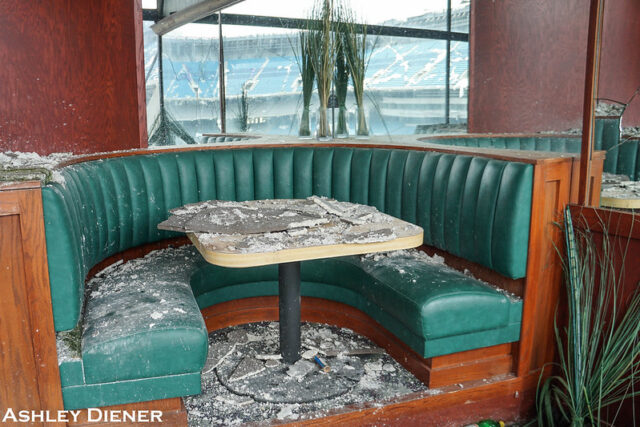
Initially, the Pontiac Silverdome was a multipurpose stadium, where racing, Jehovah’s Witness conventions and a Crusade by American evangelist Billy Graham were held. In 1994, it played host to the FIFA World Cup, during which the first indoor game was played, and several concerts were performed over the years, including those by Led Zepplin, The Who and Michael Jackson.
The stadium was even home to the Detroit Pistons, a National Basketball Association (NBA) team, from 1978-88. However, it was the Detroit Lions that were key to its success.
The Pontiac Silverdome was home to the Detroit Lions
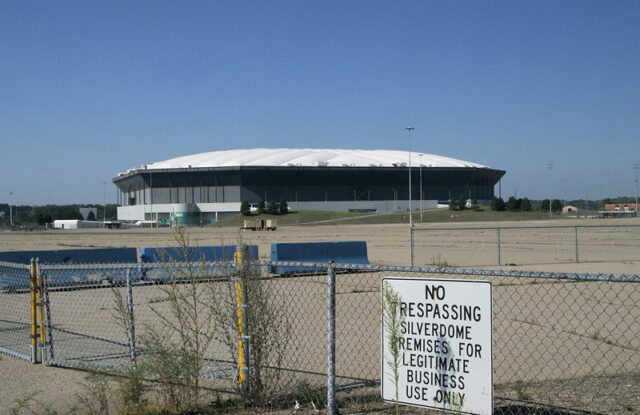
Originally established as the Portsmouth Spartans in 1930, the team that became known as the Detroit Lions was transferred to Michigan‘s capital city four years later. When the Pontiac Silverdome opened in 1975, it became the home stadium for the team, and 27 seasons were played there before it moved to Ford Field in downtown Detroit at the end of the 2001 NFL season.
Rising debts
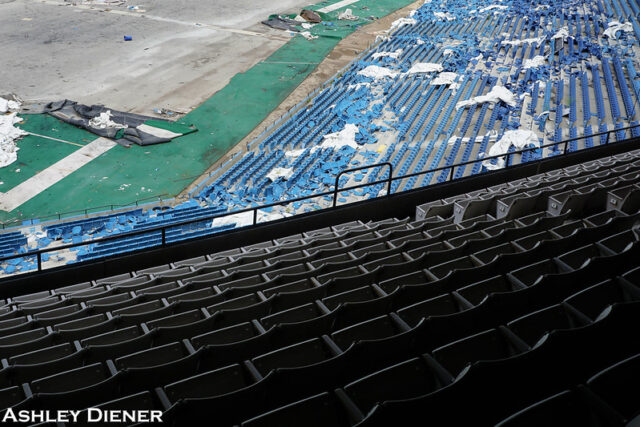
One of the primary reasons behind the Detroit Lions moving to Ford Field was that much of the money brought in by the Pontiac Silverdome went to paying off debts related to the sports stadium. This also meant that little in the way of maintenance was done, as such work was particularly expensive. On top of this, Pontiac itself was suffering from an ever-growing financial crisis.
Auctioning off the Pontiac Silverdome to a new tenant
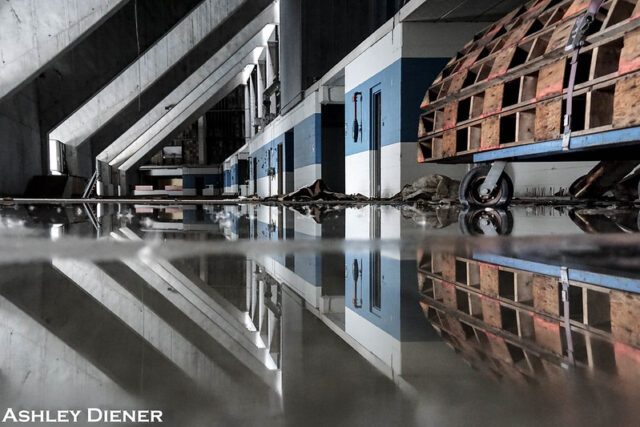
In 2009, the city put the Pontiac Silverdome up for auction, with Canadian real estate developer Andreas Apostolopoulos placing the winning bid of $550,000. In an attempt to modernize the facility and bring it back to life, Apostolopoulos spent $6 million of his own funds.
The next year, the stadium reopened to the public with a monster truck showcase, followed by an exhibition soccer game between Italy‘s AC Milan and Greece‘s Panathinaikos FC.
A roof collapse signaled the end of the Pontiac Silverdome
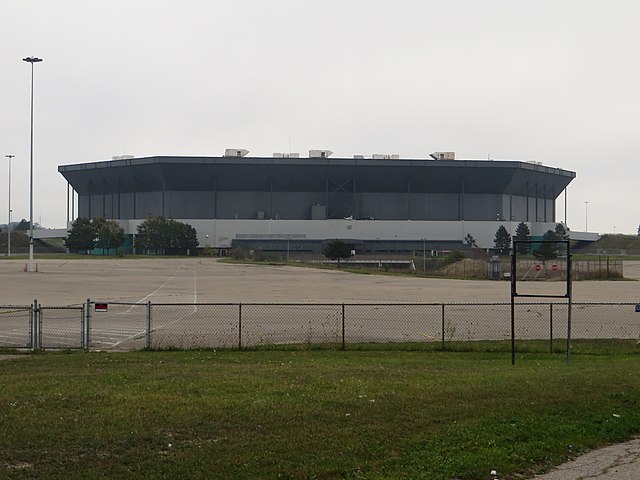
Despite Andreas Apostolopoulos’ efforts to revitalize the Pontiac Silverdome, he wasn’t able to draw enough events to make a substantial profit. On top of that, the stadium’s roof collapsed during an intense January 2013 winter storm. A year later, the decision was made to, once again, auction off the property.
Left abandoned
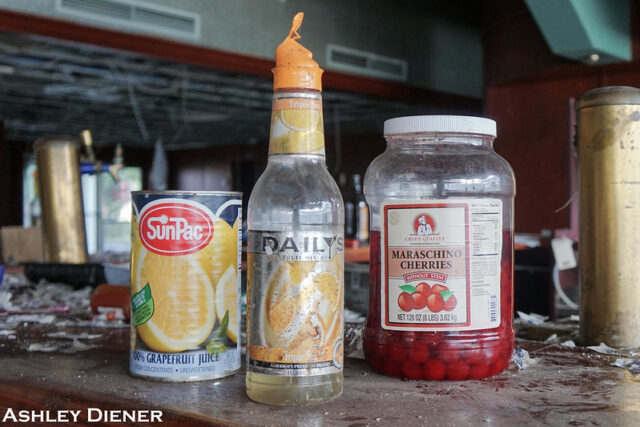
Before long, the Pontiac Silverdome was left abandoned, the roof collapse causing far too much damage to warrant the stadium being rebuilt. In 2015, the parking lot was used to store 9,000 recalled Volkswagen vehicles, but was done so without the proper permits, leading the city to issue six separate citations against the company.
Demolishing the Pontiac Silverdome
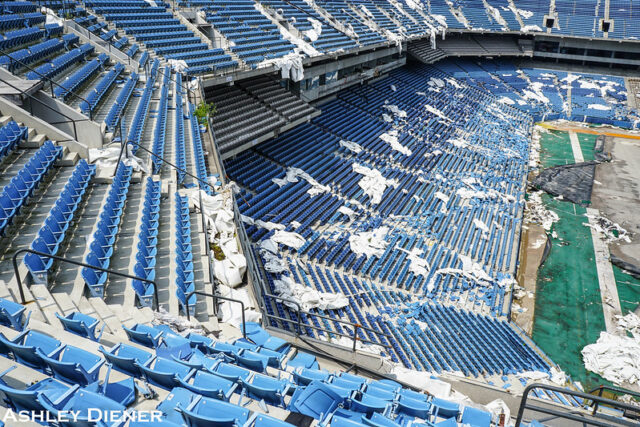
After much discussion between then-Mayor Deirdre Waterman and Andreas Apostolopoulos, the decision was made to demolish the Pontiac Silverdome. It took two attempts, as the first failed due to a wiring issue causing eight of the charges to not detonate. The second successful try was made the following day, with the work reaching completion in 2018.
Taken over by Amazon
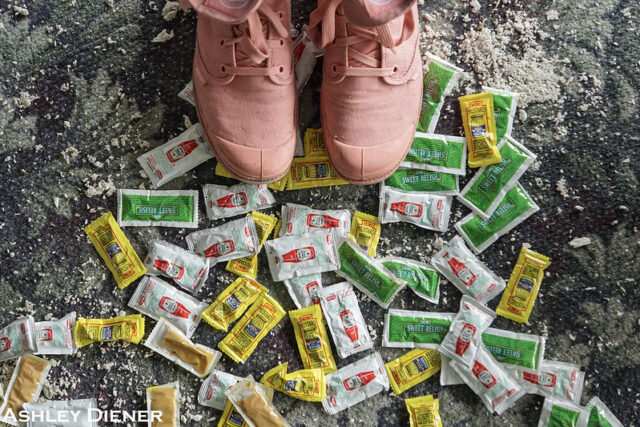
More from us: Woodward Avenue Presbyterian Church: A Grandiose Gothic Revival Structure Left Abandoned
With the Pontiac Silverdome out of the way, work was done to secure a new owner for the property. Amazon ultimately won the prize, erecting both a delivery and distribution center on the site. It’s reported the project cost an estimated $250 million.
